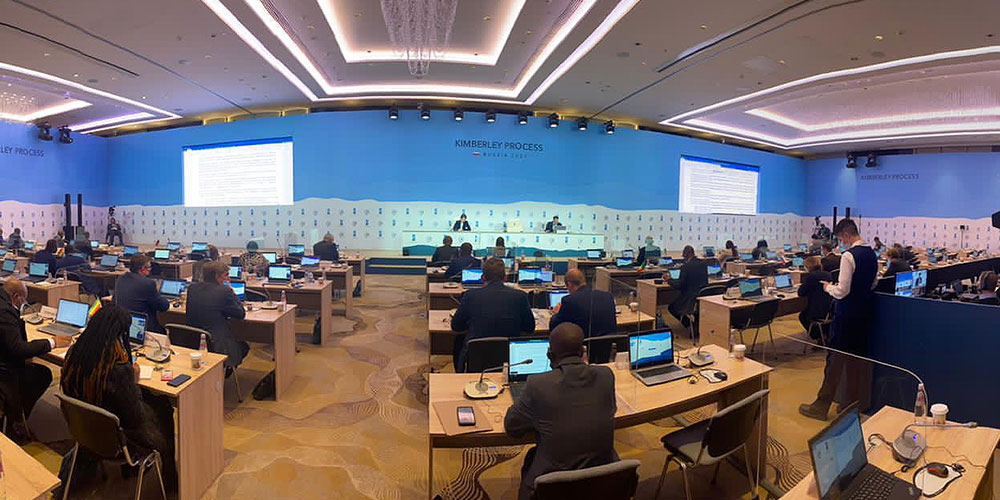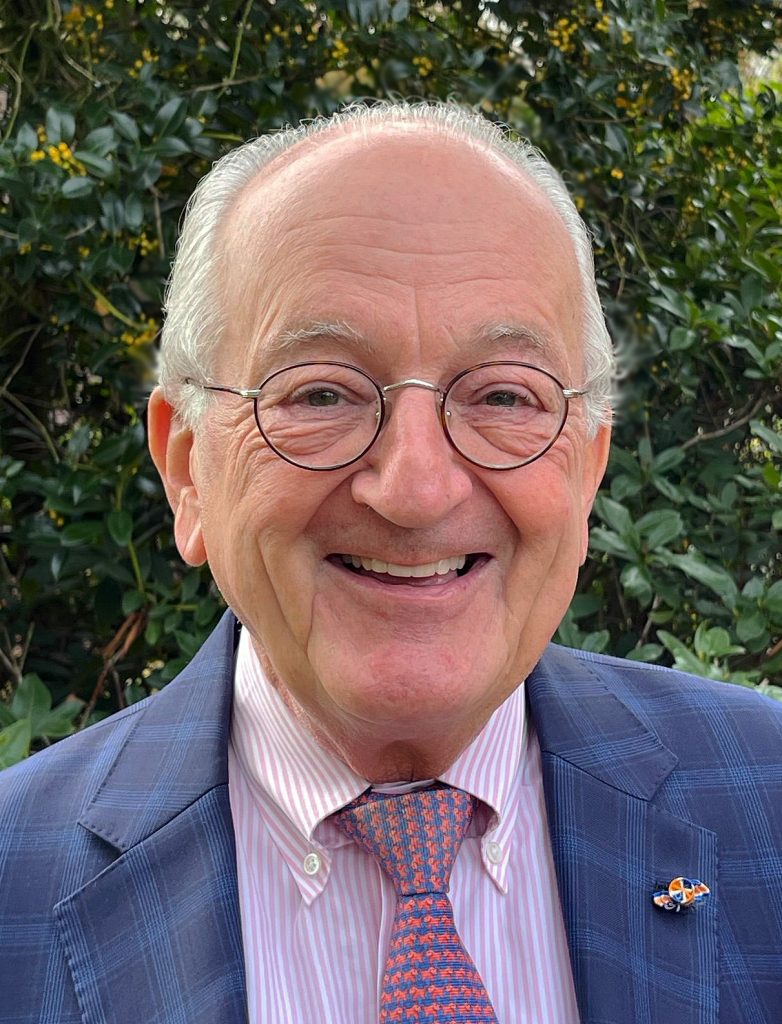WDC President Edward Asscher struck a positive tone in a statement made at end of the Closing Session of the 2021 Kimberley Process (KP) Plenary on 12th November, noting that he was encouraged by the KP’s constructive discussions and its welcoming of a Declaration on Supporting Principles for Responsible Diamond Sourcing as Best Practices.
“This is a positive step that further highlights the important role of the KP in stemming the flow of conflict diamonds,” the WDC President said.
While the WDC would have preferred that the KP make concrete decision about the expansion of the conflict diamond definition, Asscher said, “we always seek to support journeys of continuous improvement, and so we will continue to push for progress.” He added that the WDC will place the conflict diamond definition as a priority item, when the KP begins its next Review Cycle.
WDC President Edward Asscher
While it continues to encourage the KP to make the progress that is necessary both to protect the security and wellbeing of all individuals working and living in diamond producing regions, and to satisfy consumer confidence, the WDC has selected to move ahead on its own, introducing its revised System of Warranties, the WDC President said.
“This holistic approach is imperative for all of us in the business of selling diamonds, because who today wants to buy a pair of sneakers, a t-shirt, coffee beans or chocolate – let alone emotionally symbolic jewellery – if there is any doubt about the conditions in which its components were sourced and the impacts they had on society,” Asscher stated.
“The System of Warranties is only the beginning,” he continued. “As, I said, our guiding principle is that we are on a journey of continual improvement. And we will do so in such a way that two principles are maintained at all times: (1) we must be fair to all concerned, which in practice means moving forward in the spirit of the Declaration on Responsible Sourcing; and (2) we do not want to leave anyone behind.”
In his address, the WDC President expressed the industry’s support for suspending the expansion of green zones in the Central African Republic, from where rough diamonds can be legally exported, until such time that it can be verified that the Kimberley Process Certification Scheme can be reliably implemented in currently non-compliant parts of the country.
Addressing the delegation from CAR directly he stated: “It is our fervent hope that your entire country will be considered a ‘green zone’ in the not distant future, and we will do whatever we can as the WDC to support progress towards that. It is an eventuality that your citizens and the communities in which they live deserve. But as I stated, the rules and procedures of the KP must take priority. They ultimately are what will make this happen. If we take shortcuts, we endanger the entire framework, and consequently the future of our product and your country’s wellbeing.”
Asscher praised the outgoing Chair of the Kimberley Process, the Russian Federation, for the “ingenuity and efficiency” it demonstrated in rising to the challenge of organising a hybrid Plenary meeting.
He also expressed the WDC’s pride in having the opportunity to continue heading the work of the KP’s Working Group of Diamond Experts. In this way, he said, WDC will “continue to deliver our expert knowledge, just as we have done since the beginning of the KP.” He paid special tribute to two KP stalwarts, for which the 2021 Plenary meeting will be last they attend in an official capacity. The first was Hilde Hardeman, the Head of the European Commission’s Service for Foreign Policy Instruments, who herself served as KP Chair in 2018 and then continued to head the EU delegation to the Kimberley Process, working tirelessly all the while to reach consensus on an expanded definition for conflict diamonds. The second official was the long-time head of the American delegation, Pamela Fierst Walsh, Senior Advisor on Conflict Minerals at the US Department of State, who will be moving to a private sector position.


